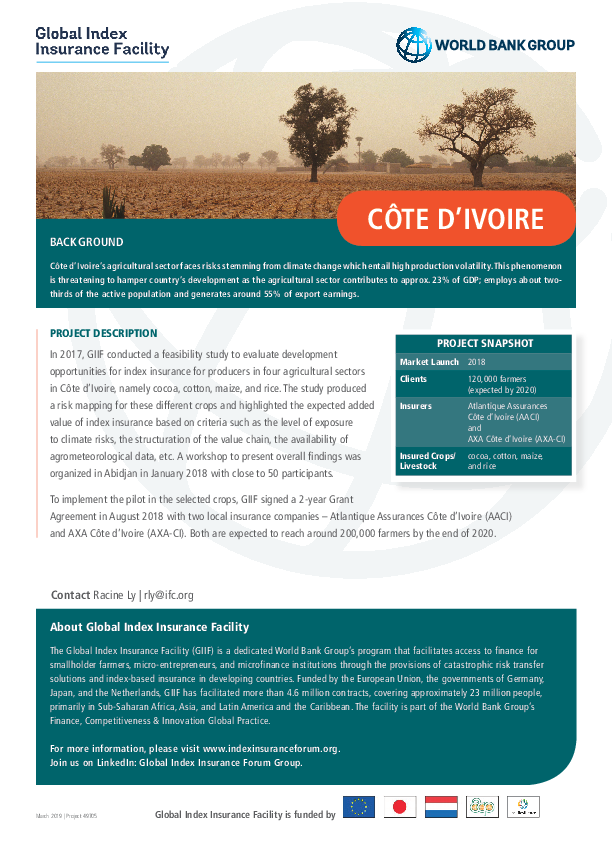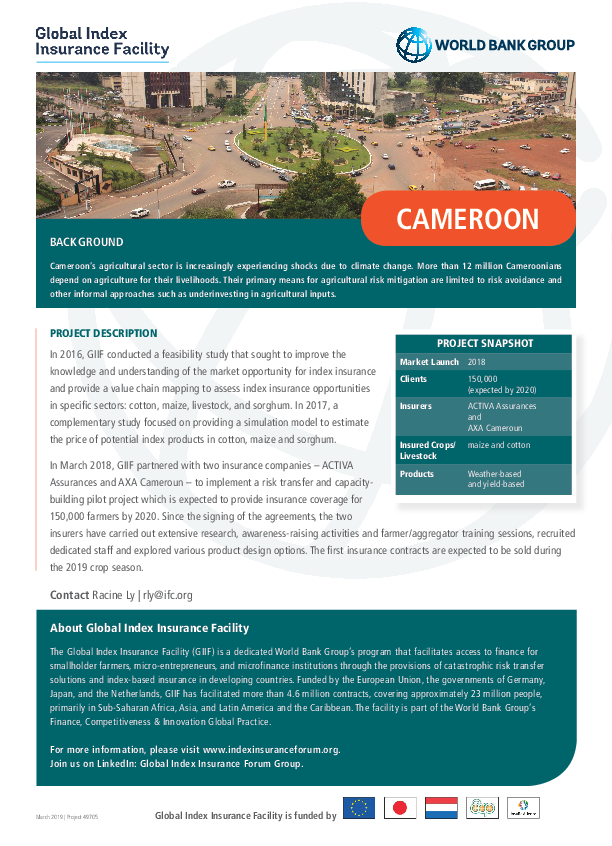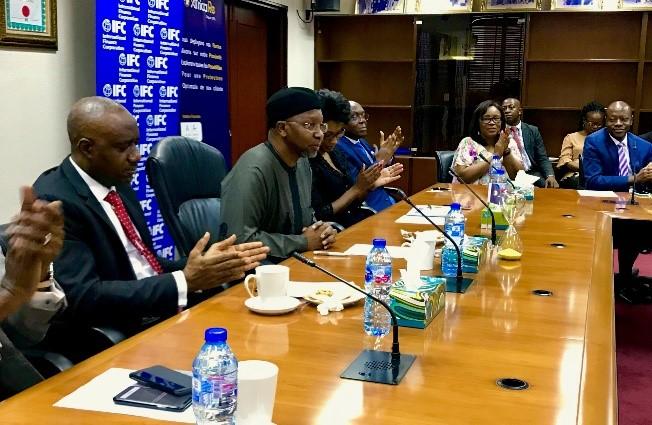
A newly designed Global Index Insurance Facility's Country Profile for Côte d'Ivoire is available for digital viewing. The document contains an overview of GIIF's project in the country with Partners Atlantique Assurances Côte d’Ivoire (AACI) and AXA Côte d’Ivoire (AXA-CI). Also available in French.


